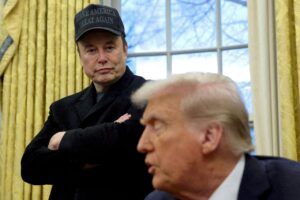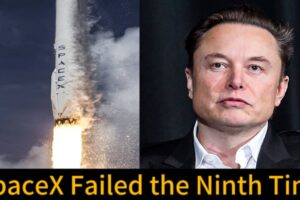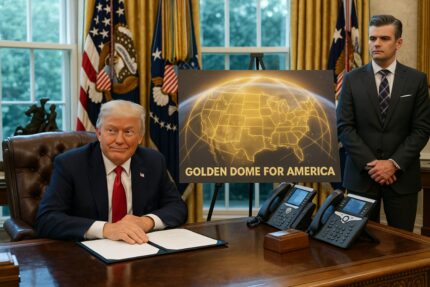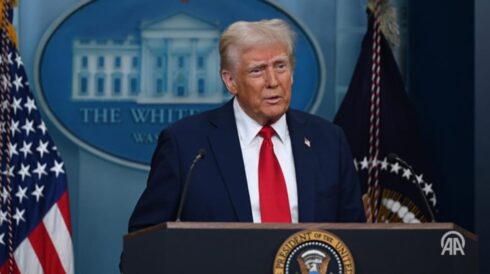On May 20, U.S. President Donald Trump unveiled the ambitious “Golden Dome” missile defense system, a $175 billion space-based initiative designed to protect American interests from advanced missile threats posed by adversarial nations such as North Korea, China, Iran, and Russia. The plan, which envisions a network of satellites equipped with cutting-edge sensors and interceptors, aims to neutralize aerial threats before they reach U.S. soil.
Billed as the space counterpart to Israel’s Iron Dome, the Golden Dome is expected to be operational within three years. It represents a major escalation in the United States’ approach to national security, signaling a shift from terrestrial to orbital defense systems. The administration describes it as a crucial step toward countering next-generation weapons, including hypersonic missiles and nuclear warheads.
North Korea Responds: ‘Golden Dome’ Could Ignite Nuclear War in Space
In a strongly worded statement released through state-run media, North Korea’s Foreign Ministry condemned the Golden Dome as “a very dangerous threatening initiative.” Pyongyang warned that the system could “turn outer space into a potential nuclear war field,” accusing Washington of recklessly pushing the militarization of space and threatening the global strategic balance.
The North characterized the U.S. move as a manifestation of “America First arrogance” and warned that it may provoke a new arms race—not only on Earth but in orbit. “This is the height of self-righteousness and a unilateral violation of global norms,” the ministry stated. It further alleged that such a system could severely weaken North Korea’s nuclear deterrence, compelling it to develop more advanced and evasive countermeasures.
China Joins Chorus of Concern: Warning of Space Arms Race
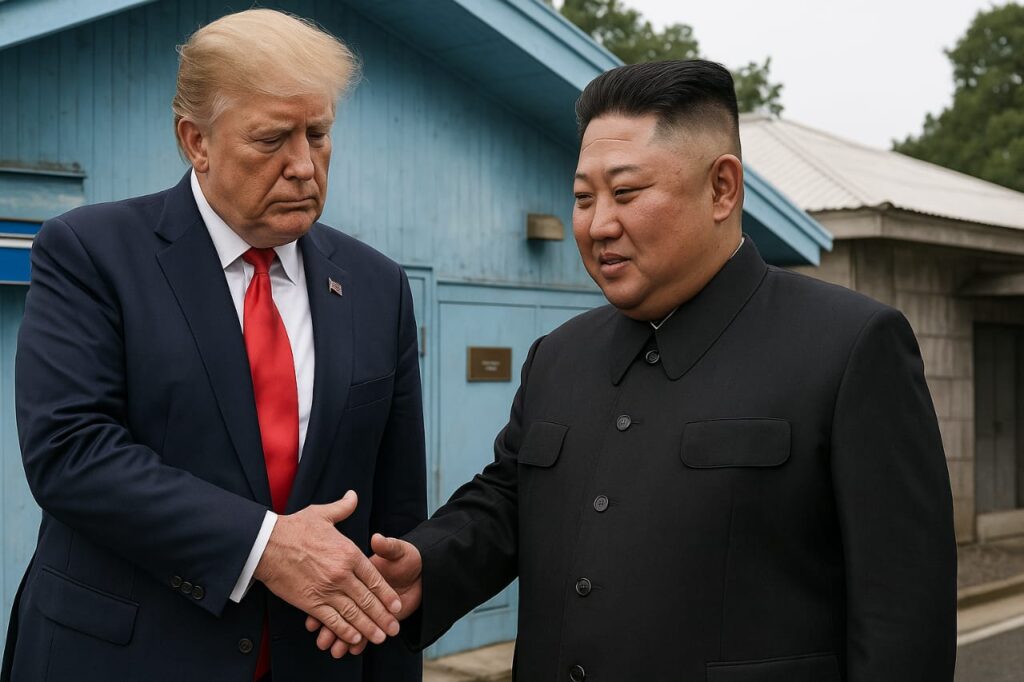
China echoed Pyongyang’s alarm, with its Foreign Ministry declaring it is “seriously concerned” about the Golden Dome. Beijing warned that the proposed system has “strong offensive implications” and urged Washington to reconsider its trajectory. “In seeking absolute security for itself, the United States is undermining the global strategic balance,” a spokesperson said.
Both China and North Korea have long opposed U.S. military expansion near their borders, but the shift to space has elevated those concerns. Analysts note that the system could be perceived not just as defensive, but as a stepping-stone to offensive capabilities in orbit, prompting other nations to respond in kind—thus triggering a dangerous space arms race.
Analysts Warn of Escalation and Strategic Instability
Experts across the globe are weighing in on the potential consequences of the Golden Dome project. Hong Min, a senior analyst at the Korea Institute for National Unification, told AFP that the missile shield may compel North Korea to diversify and upgrade its offensive capabilities. “If the U.S. completes this system, North Korea will be forced to develop alternative means to counter or penetrate it,” he explained.
This sentiment is echoed by Western analysts, who caution that any major advancement in missile interception technology—especially in space—could be misinterpreted by rivals as preparation for a first-strike advantage. The risk, they argue, is not just technical failure, but geopolitical miscalculation that could spiral into armed conflict.
Cost, Feasibility, and Future Uncertainty
While the Golden Dome is touted as a revolutionary leap in U.S. defense architecture, it faces significant hurdles. Critics question the feasibility of deploying and maintaining such a complex and costly space-based system. Initial funding of $25 billion has been allocated, but projections suggest total costs could balloon to over $500 billion in the coming decades.
The political and diplomatic costs may be even steeper. Allies have been cautious in their support, while adversaries are openly hostile. Technical challenges, ranging from satellite deployment logistics to effective threat discrimination in space, remain daunting. As the debate rages, the world watches with bated breath—hoping that this bold step toward space defense does not ignite a firestorm among the stars.




